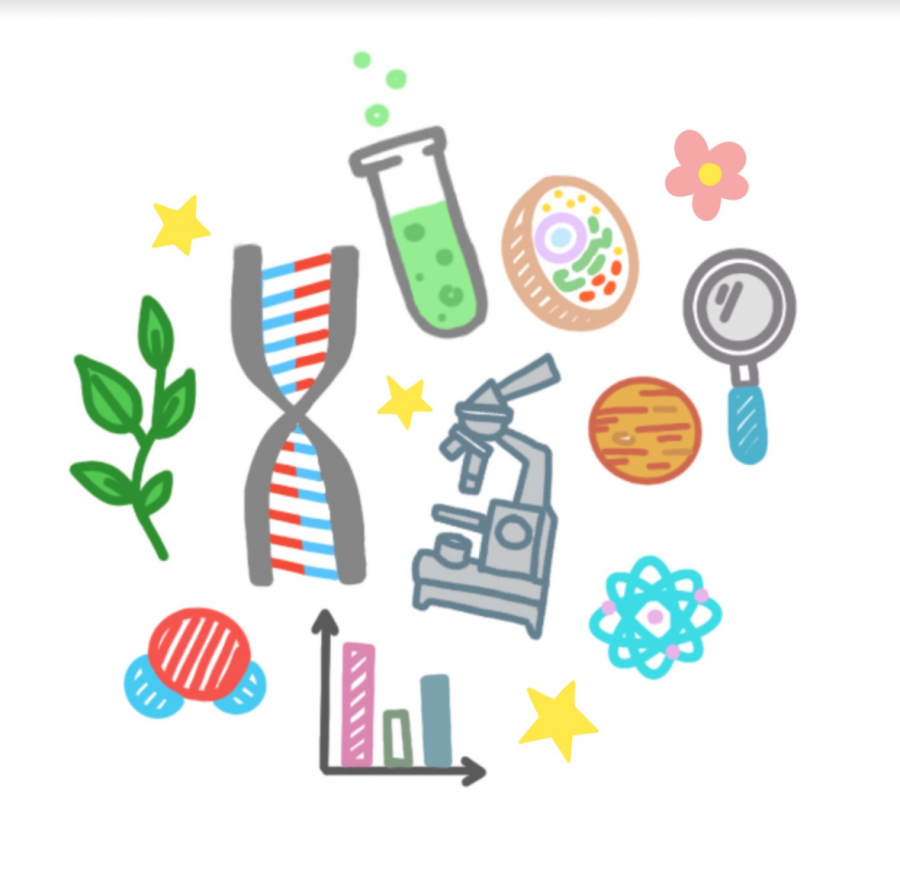The Benefits of a Science Degree, Inside and Outside of the Field
December 22, 2020
With employment in the sciences projected to grow by 9 million between the years 2012 and 2022, the privilege of having the Rindge School of Technical Arts (RSTA) programs means that students are capable of exploring the seemingly limitless opportunities of scientific fields during high school and beyond. In addition to the opportunity of pursuing the sciences, students interested in engineering or other related science fields such as biotechnology have the opportunity to use their science degrees for guidance in life as well as careers outside of science.
The guidance in life can be found in the thinking of an engineer or the curiosity of a scientist. Engineers create a plan for solving problems known as the engineering design process while scientists investigate or research problems. Despite the many intricate aspects of science, engineers and scientists have the possibility to use creativity to their advantage: “I can turn my ideas into a reality using CAD (3D modeling software),” said Ashrafer Rahman, a senior in Engineering 3.
A relative to engineering, biotechnology is a combination between biology and engineering, hence the name. It is also offered at the high school. Geneva Fischer, a senior Biotechnology 3 student at CRLS, said that one of the abilities that biotechnology allows for is “[the] understanding [of] biology helps understand other people” citing that a lack of understanding the way some people are born (genetically) is extremely detrimental to the progression of equality in society.
In a recent survey of 36 students, 33.3% did not desire to go into engineering or another science, yet 97.2% felt that the sciences are important to society, many citing that they are key for the advancement of society concerning the technological and economic aspects. Notably, civil engineering as well as the other sciences are important in the physical infrastructure of the government and nation. According to a paper from the American Society of Civil Engineers (ASCE) by Jennifer A. Wiewiora, a University of Florida professor, “As stated by the ASCE Code of Ethics, canon 1, it is the duty of civil engineers ‘to hold paramount the safety, health, and welfare of the public and … recognize that the lives, safety, health, and welfare of the general public are dependent upon engineering judgments, decisions, and practices.'”
Science degrees for both civilians and military officer candidates are extremely valuable, but in some cases, they give a military officer an advantage. The United States Navy has highly valued science degrees since the 1910s, evidenced by an address to the Secretary of the Navy from the American Society of Engineers in 1919:“Engineering has come to be the chief profession in America, for everything that moves depends upon the genius, knowledge, and skill of men who are as much at home in overalls as in dinner coats.”
Just as engineering is important to society, biotechnology also remains important in society, especially during these times. Unlike regular biology, biotechnology industrializes the sciences, something which was traditionally rejected by scientists yet embraced by engineers. Companies such as Pfizer and Moderna are currently researching a vaccine for the COVID-19 Pandemic. Gonzalo Anyosa, a senior Biotechnology 3 student and the president of the Biotechnology Club said that in this time, “Biotechnology is of great importance because all of the sciences are working together.”
A splinter of biotechnology, nanotechnology also highlights the need for the sciences. Nanotechnology is the microscopic study of biotechnology, dealing with things on the scale of atoms, hence the name “nano.” According to Diana Lopez-Canta, a nanotechnologist at Brigham and Women’s Hospital, “Nanotechnology and chemical sciences can be applied to anything such as polymer technology, and for transportation. Nanotechnology is going to improve the quality of life in the world.” Students who take advantage of the opportunity to pursue STEM are allowed to explore a vast amount of knowledge about the world and life. As Sir William Brag, a Nobel Peace Prize winning scientist, once said, “The most important thing in science is not so much to obtain new facts as to discover new ways of thinking.”










